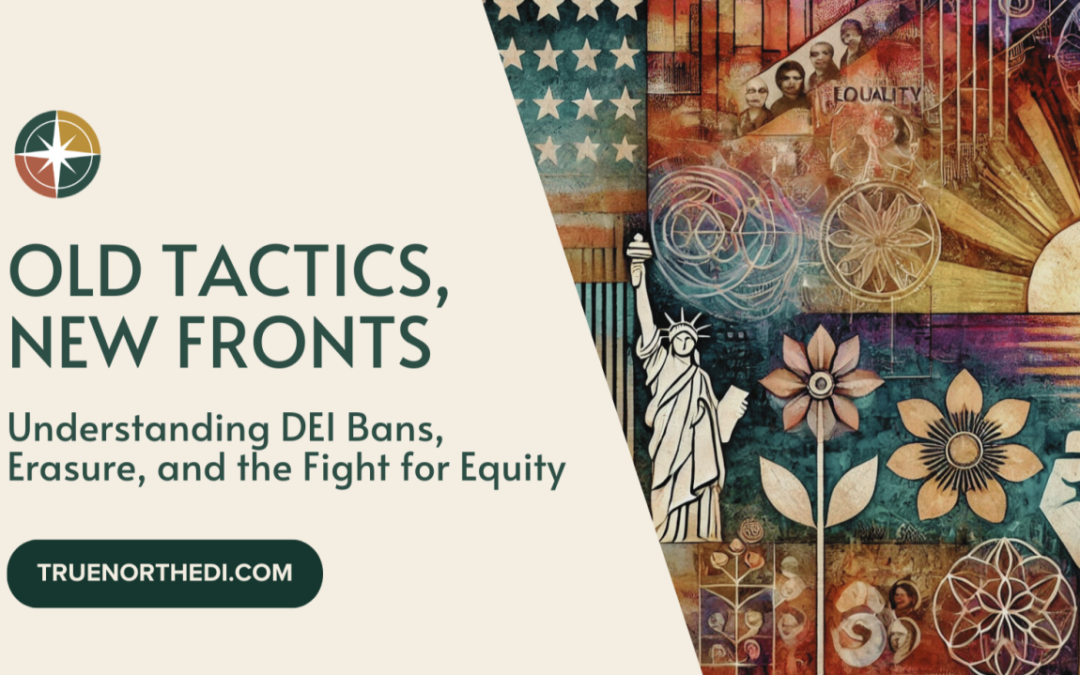Written by Cardozie Jones, CEO and Founder, True North EDI
The political landscape in the United States is shifting, and with it, so are the boundaries of what is acceptable to discuss, teach, and prioritize in workplaces, schools, and public life. Diversity, Equity, and Inclusion (DEI) programs and initiatives, which seek to create more equitable spaces and address systemic inequities, are under attack at an unprecedented scale. But this isn’t just a reactionary pushback—it’s part of a deliberate effort to suppress the transformative potential of empathy, information sharing, and coalition building.
What’s more, these efforts go beyond erasing history. They are actively erasing people. Policies like “don’t-say-LGBTQ” laws and targeted attacks on trans rights are not just about avoiding discomfort; they are designed to invalidate entire identities. This combination of bans on both critical histories and lived realities forms a broader strategy of cultural and political erasure.
The DEI Effectiveness Debate
DEI, at its core, is an intervention, not a cure. As I’ve written in an earlier blog, DEI aims to counter systems of inequity that were deliberately engineered to reproduce themselves long after their architects have passed. These are systems that normalize disparities in opportunity and outcomes while ensuring they persist across generations.
Even though DEI is an umbrella term encompassing multiple theories of change, it is only one lever in the larger social justice framework. Any “cure” will require continued collaboration across social spheres. The fact that DEI has become so polarizing shows that it is, in many ways, working. Resistance often signals the disruption of entrenched systems.
Lessons from Bacon’s Rebellion
To understand the stakes, we can look back to Bacon’s Rebellion in 1676. In that moment, poor white laborers and enslaved Africans united against the ruling elite, threatening the status quo. The response was decisive: a racial hierarchy was imposed by a fearful U.S. government, granting privileges to poor whites while entrenching the enslavement and subjugation of Black people. This racial division was not incidental; it was a deliberate strategy to fracture solidarity and protect the power of the elite.
Today, we see a similar strategy. DEI bans, book bans, and anti-LGBTQ laws all serve to create divisions. Race, privilege, and entitlement are wielded as tools to fracture solidarity, ensuring that marginalized communities remain isolated.

